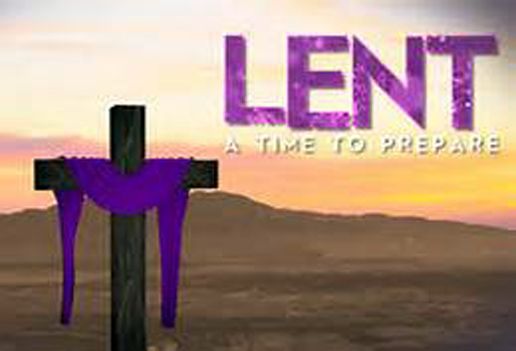Easter is the most important day of the year for Christians, and it arrives relatively late this year: April 20. However, it is preceded by the preparatory season of Lent, which begins on March 5 for most Christians (and March 3 for those following the traditional Eastern Orthodox calendar).
Historically, this period of some 40 days was observed by fasting. In fact, an English statute from 1570 set a fine and prison term as the penalty for any violation of the Lenten Fast.
Today, this time may be observed by fasting, but also by “penitence, almsgiving, prayer, study” and self-deprivation, the always popular “giving something up” for Lent. However, for those desiring a different kind of personal Lenten sacrifice, here are three suggestions recently promoted on the Internet.
• Time-tithing: Christians are often called upon to tithe their income, to contribute 10 percent of their money to the church. Peter Misiaszek, Stewardship Director of the Anglican Diocese of Toronto (Canada), suggests a variant of this idea, dedicating 10 percent of one’s time to “serving God and the people of God in the world.”
He calculates the average Canadian spends 168 hours each week on activities like sleep (49 hours), work (40 hours), television/Internet (15 hours) and meal preparation/eating (15 hours). A tithe of this time equals “16.8 hours of service to the Lord over the course of a week.”
He then suggests embedding opportunities for prayer, reading, service and worship into one’s weekly schedule by listening to an inspirational CD (instead of the radio), meditating while walking, reading the Bible for 30 minutes daily (rather than secular material), attending a Bible study and worship service each week and volunteering to work for a community group or charity.
He writes that while the “gift of treasure” is necessary, the parish experience would be improved “if everyone in the congregation were encouraged to tithe their time.”
• Lenten Challenge: This ecumenical website offers a challenge to observe Lent through 20 minutes of prayer each day, one hour of worship a week and four hours of community service a month.
While commending these practices, this site challenges people to accept the challenge by registering online. Then it provides participants a means to request individual assistance and sends frequent email updates. (See www.prayworshipserve.com)
• 1K Churches: Another Lenten program is sponsored by the nonprofit Criterion Institute seeking to connect people of faith with the economy. Most Christians don’t realize the “enormous footprint in the economy” of churches that own, rent, buy and sell property, consume energy, control hundreds of units of low-income housing, or operate hospitals, schools, cemeteries and other businesses. More than 50 percent of all charitable contributions annually go to religious institutions.
1K Churches is a campaign to get 1,000 churches investing in their local communities through microlending. This means making small loans to local people who use that money to start up businesses that can “radically impact the lives of our neighbors, the health of our neighborhoods and the strength of our economy.”
This fall, 25 mainline, evangelical and Roman Catholic congregations across the country began a discernment process. With minimal paid staff, success will rely on volunteers and online tools to support implementation within these religious bodies.
South Valley churches wanting to know more about this innovative approach to combating poverty can visit www.indiegogo.com/projects/1k-churches-campaign.
Chuck Flagg is a retired teacher with a passion for religion. Reach him at cf****@**********rs.com.










